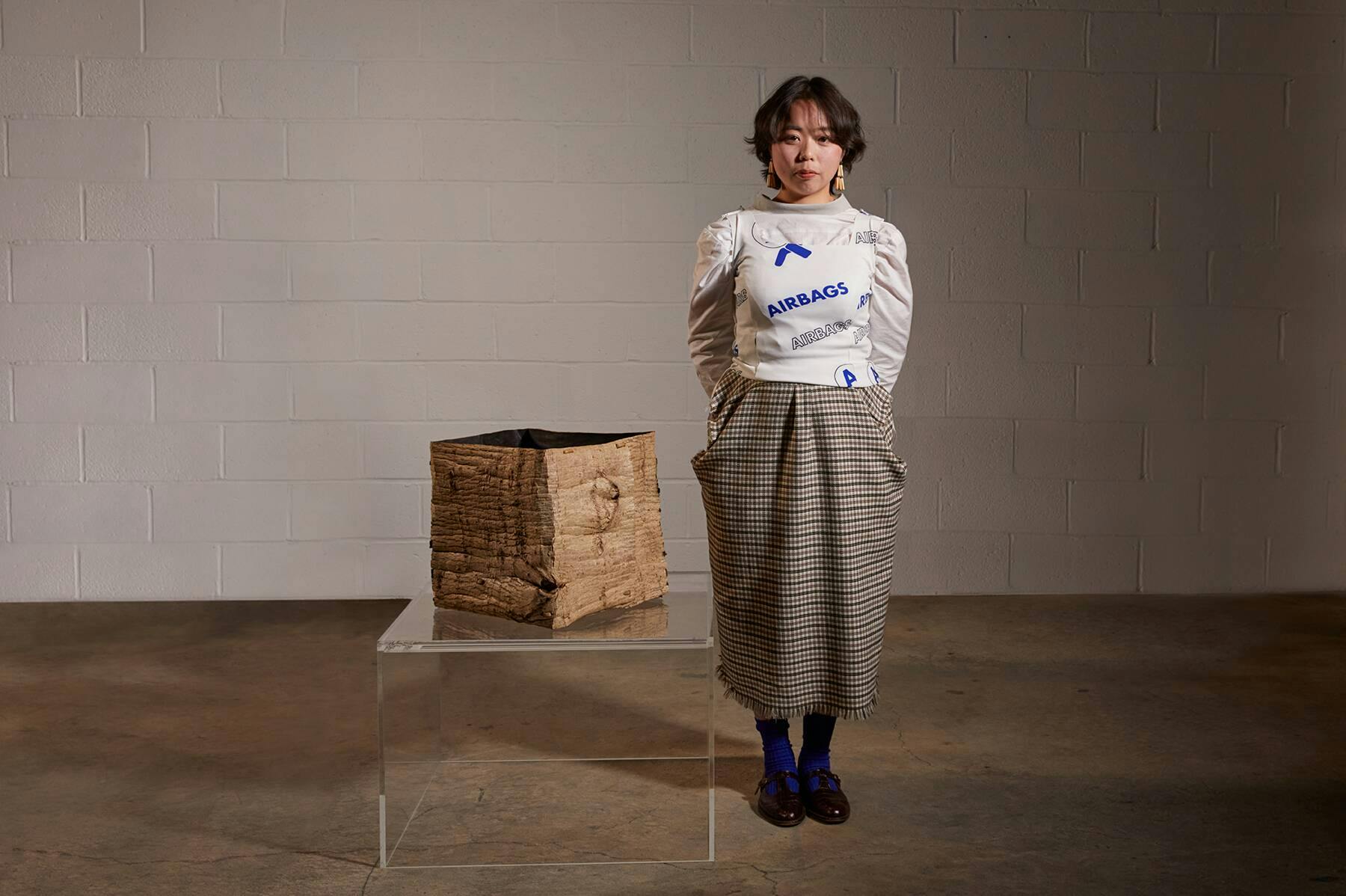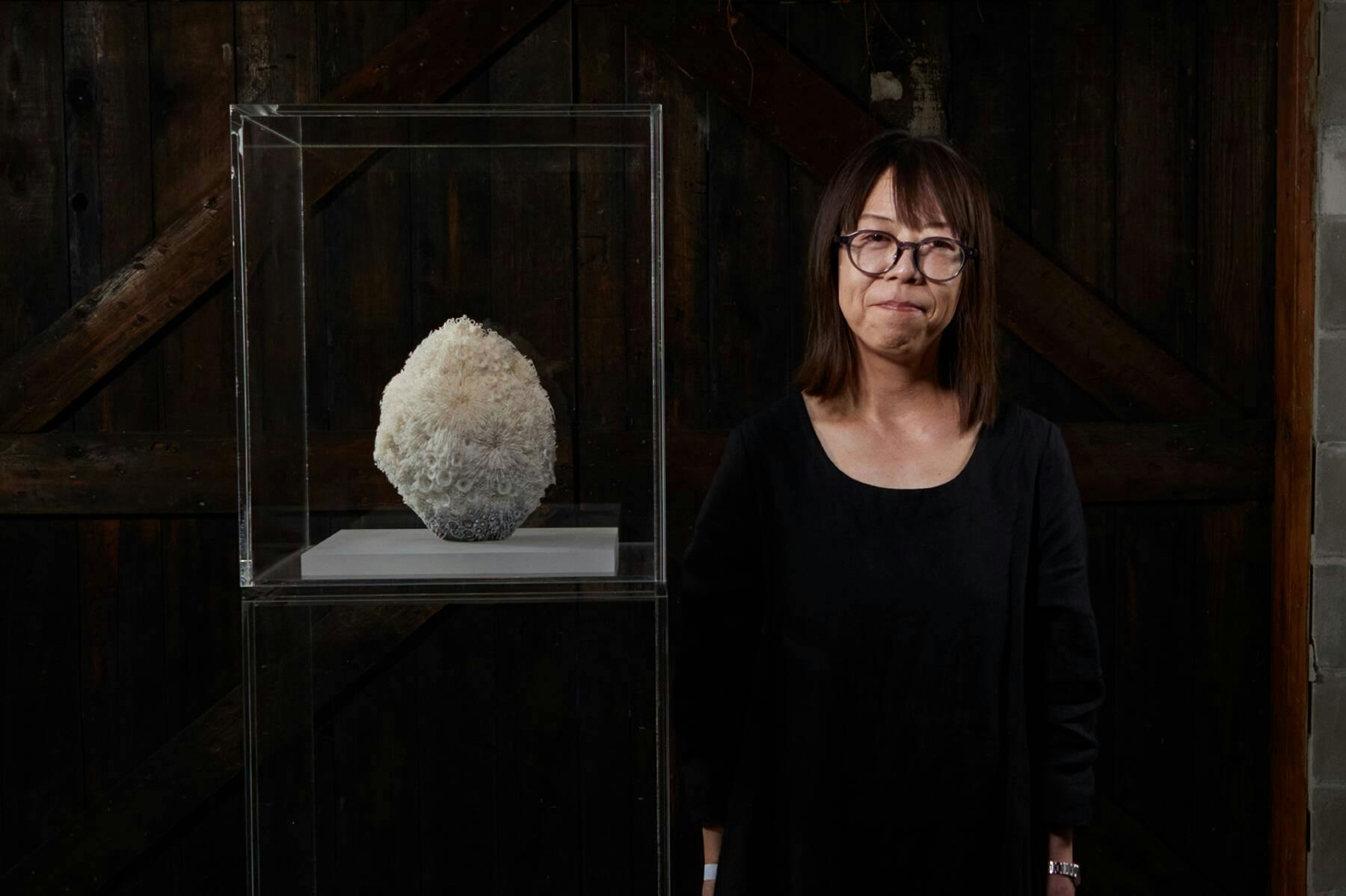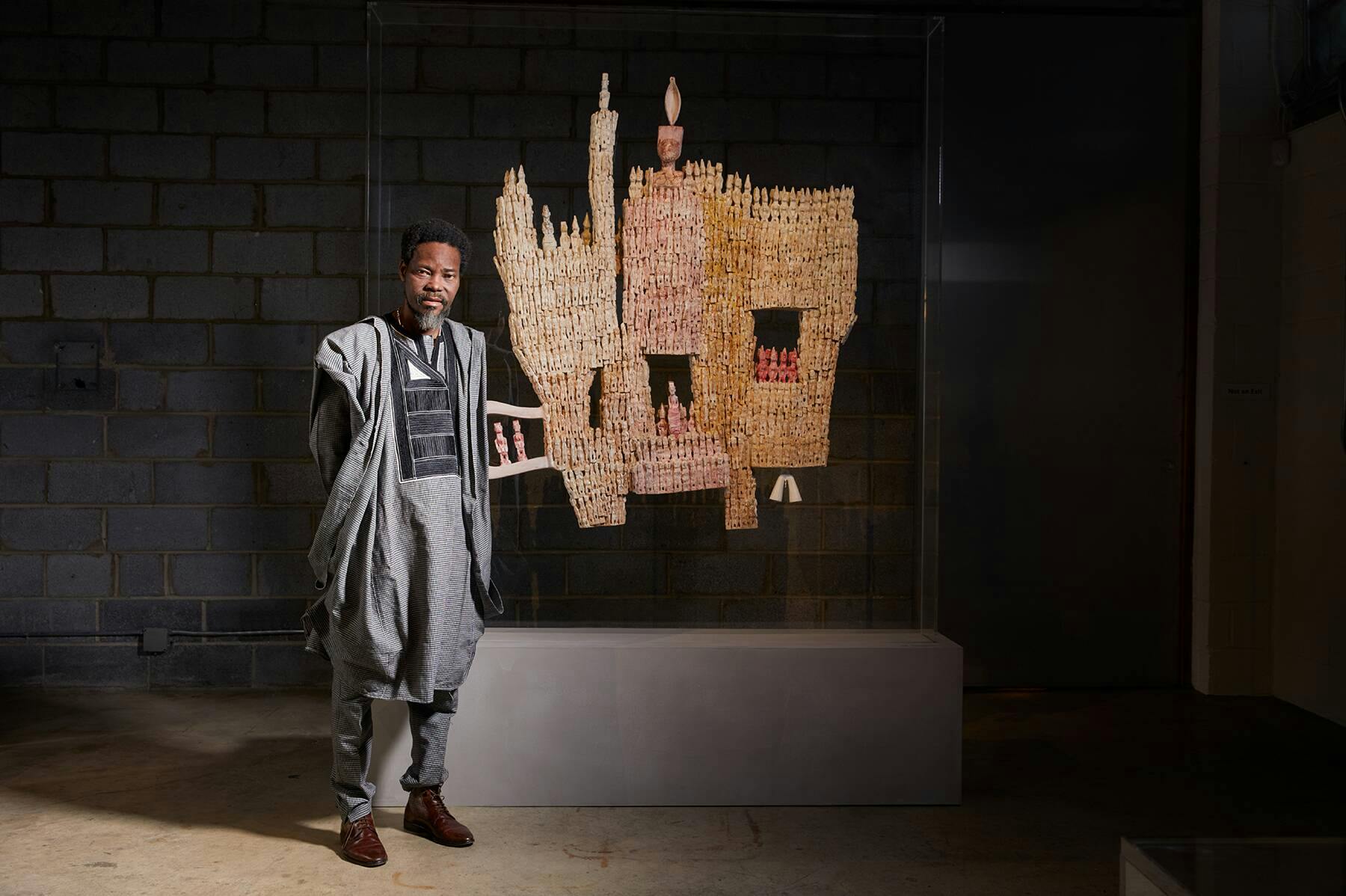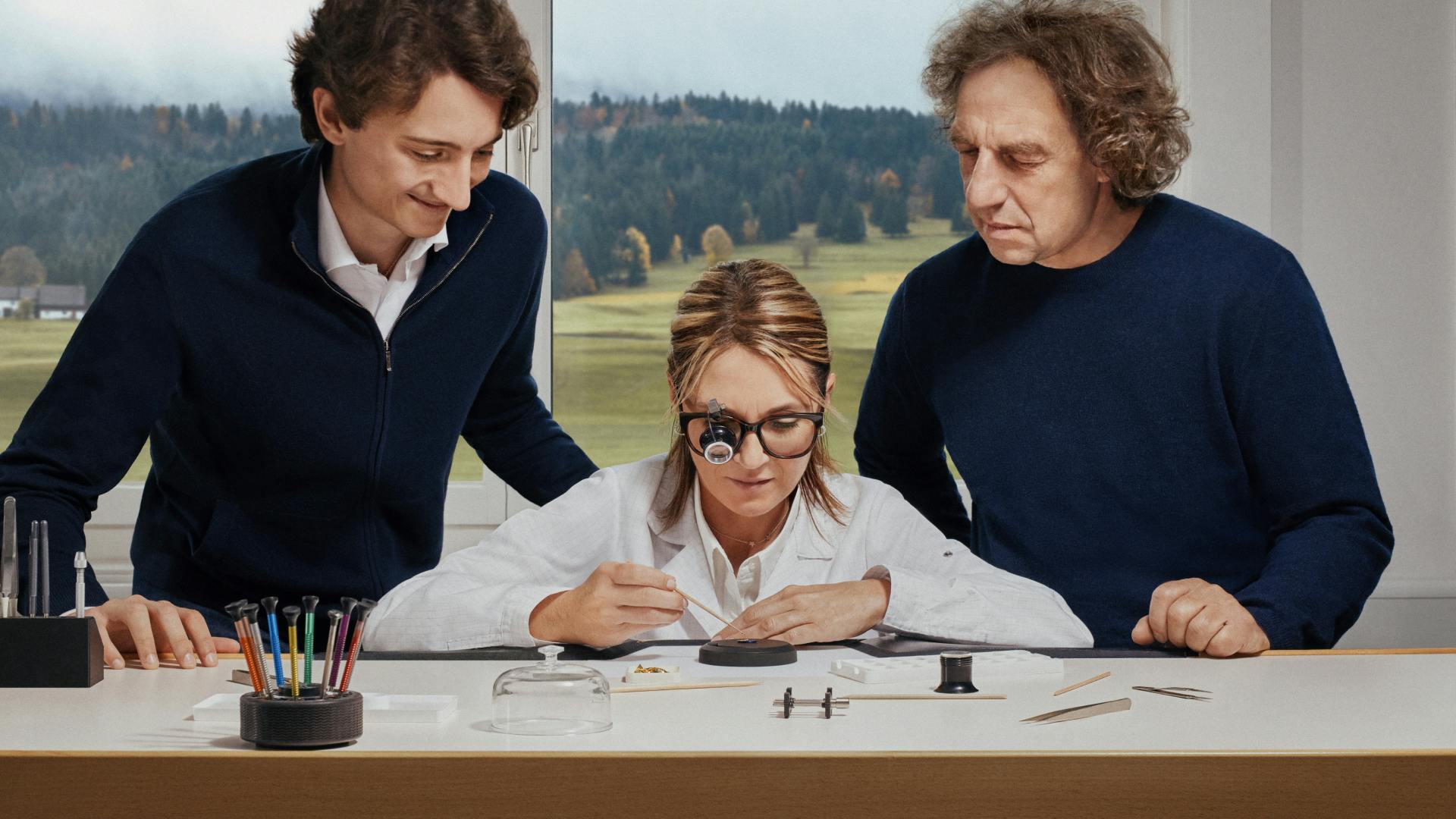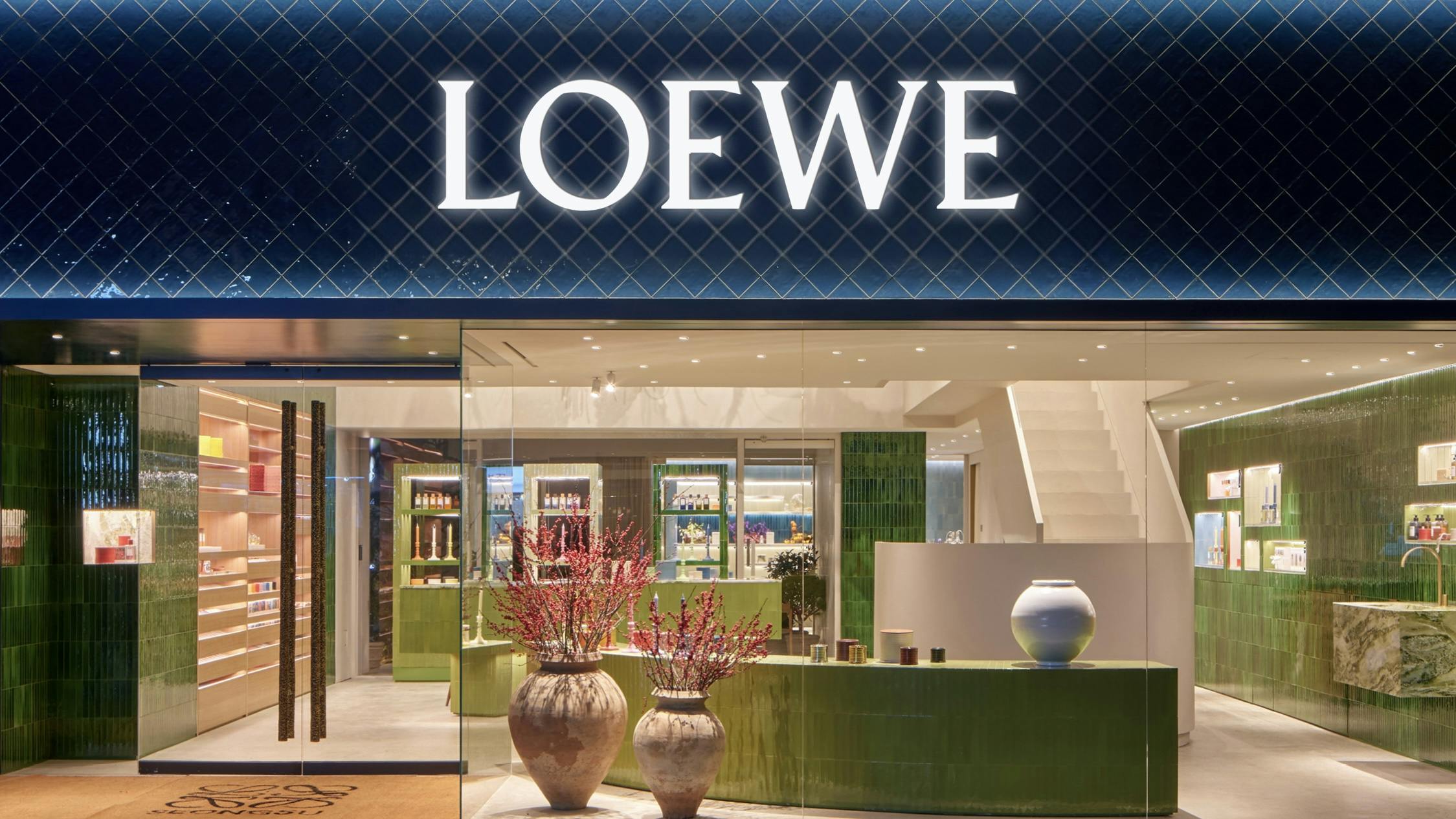Eriko Inazaki wins 2023 LOEWE FOUNDATION Craft Prize
Published on 05.19.2023 • 2 minutes- Innovation
- Fashion & Leather goods

Eriko Inazaki of Japan was awarded this year’s LOEWE FOUNDATION Craft Prize for her work Metanoia, 2019.She was chosen from among 30 finalists shortlisted by a panel in January. A jury of leading figures from the worlds of design, architecture, journalism, criticism and museum curatorship – including Magdalene Odundo, Anatxu Zabalbeascoa, Olivier Gabet and Patricia Urquiola – was won over by Inazaki’s ornamental ceramic sculpture.
Conceived by LOEWE Creative Director Jonathan Anderson, the Craft Prize celebrates excellence and newness in modern craftsmanship and recognizes artists who set a new standard for the future.
‘Craft is the essence of LOEWE. As a house, we are about craft in the purest sense of the word. That is where our modernity lies, and it will always be relevant.’ — Jonathan Anderson, LOEWE Creative Director
The 2023 edition of the LOEWE FOUNDATION Craft Prize presents a selection of works that explore meditative, time-intensive techniques and showcase a skillful manipulation of materials, from ceramics, wood and textiles to leather, glass and metal. Eriko Inazaki’s ceramic sculpture was created through an accumulation of minuscule forms that coalesce across the work’s crystallized surface. The virtuosity of the sculpture creates a spellbinding presence that commands the exhibition space and inspires wonder.
The jury also awarded two special mentions:
- Dominique Zinkpè (Benin) for his work The Watchers (2022), a wall sculpture made of wood that evokes traditional Yoruba beliefs. The jury chose the work for its sculptural reinterpretation of traditional beliefs and its expansion of what contemporary craft can be.
- Moe Watanabe (Japan) for her work Transfer Surface (2022). This walnut bark box is a tribute to the cyclical turns of the seasons and recalls the ancient Japanese tradition of Ikebana vase making. The jury chose the work for its celebration of the materiality of bark and its use of rivets, referencing both architectural construction and the tradition of mending.
Visuals - Eriko Inazaki wins 2023 LOEWE FOUNDATION Craft Prize
Visuals - Eriko Inazaki wins 2023 LOEWE FOUNDATION Craft Prize
Eriko Inazaki wins 2023 LOEWE FOUNDATION Craft Prize

